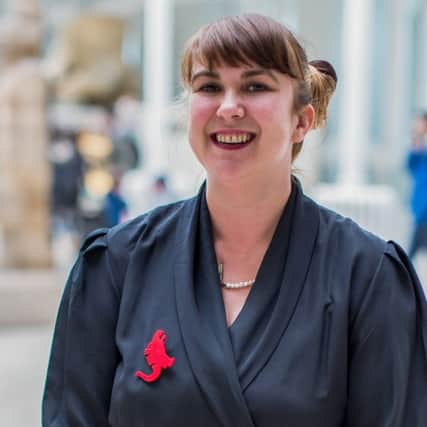Amanda Tyndall: A vital festival for a post-truth world


Science is at the heart of our lives in more ways than we often realise. From the complexity of our bodies and minds to the food we eat, cities we inhabit, clothes we wear and games we play, science is everywhere. And that’s just the fun stuff, there’s a far more serious side. Some of the biggest global challenges centre on science – healthcare, food security, climate change and the protection of the environment, for starters – not to mention the potential of science and technology to drive innovation, economies and policy. Edinburgh’s championing of the values of the Enlightenment is more relevant than ever.
We inhabit a time in which objective facts are often less influential in shaping public opinion than appeals to emotion and personal belief. Evidence, reason and rationality are under attack from all sides, so much so that “post-truth” was the Oxford Dictionary’s Word of the Year in 2016 and, on the back of the European Union referendum and the outcome of the US presidential election, is now a mainstay in political discourse. From the persistence of the anti-vaccination movement and climate denial to the Trump administration’s steps to abolish the EPA, there is a worrying rise in non-enlightened thinking and science censorship.
Advertisement
Hide AdAdvertisement
Hide AdWhat does this mean for those of us in the business of making scientific information understandable, credible, relevant and accessible? If the world no longer values knowledge, facts and learning – the principles on which science is based – what can we do to protect the pursuit of scientific truth? How do we best operate in a world in which objective facts and evidence can be lost in the noise of direct appeals to emotion, sentiment and personal beliefs?
We do it by building bridges not borders. By acknowledging that, like it or not, not everybody is swayed by the evidence or convinced of science’s relevance to their lives and that we need to find innovative, creative ways to reach them. So not only are we a platform for discussion of the big issues, we provide plenty of less formal opportunities for people to explore science’s crucial role in culture and in their lives, working with partners of all persuasions to bring science-themed theatre, art, music and food events to Edinburgh each April.
Access to information underpins an informed democracy and we each have an obligation to equip ourselves with the attitudes, knowledge and confidence to participate actively in debate about the decisions that impact our lives so profoundly. In this manner, the Edinburgh International Science Festival has a role to play in championing a return to reasoned and rational thinking and a new age of Enlightenment in a post-truth world.
Amanda Tyndall is Creative Director of the Edinburgh International Science Festival, which this year runs from April 1-16. Philosopher Julian Baggini and Prof Dame Anne Glover, Vice-Principal of the University of Aberdeen and former Chief Scientific Adviser to the President of the European Commission will explore “Science in a Post-Truth World” at the National Museum of Scotland on Wednesday, April 5.